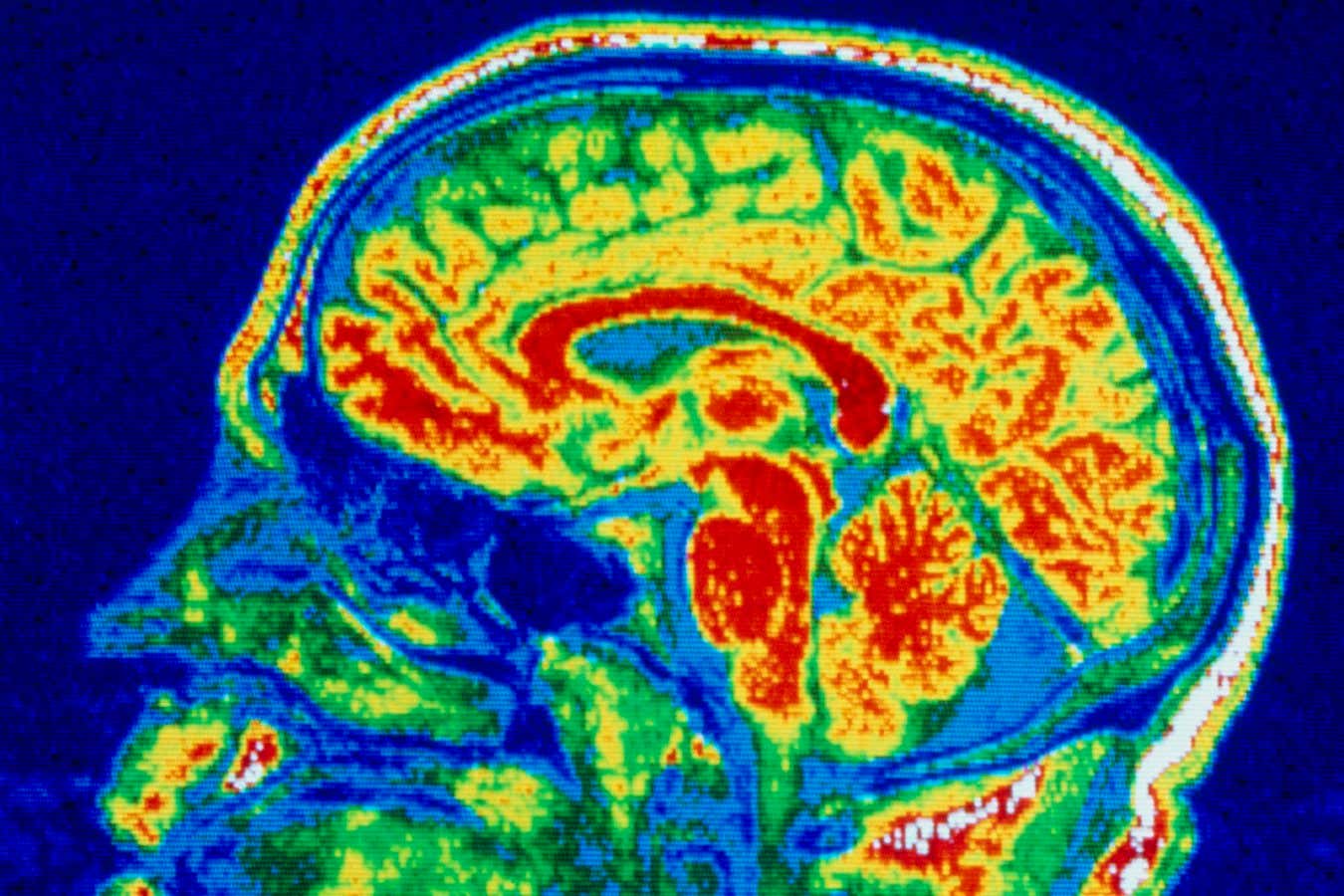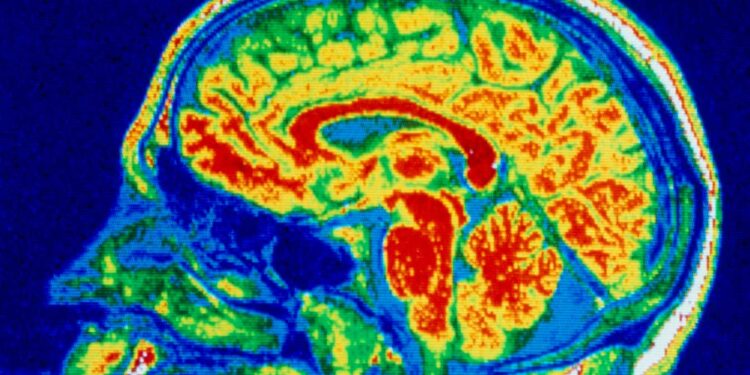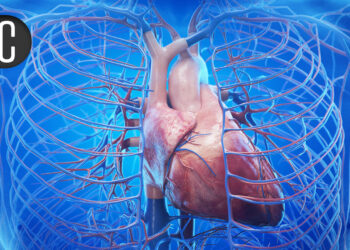
A false-colour nuclear magnetic resonance image of a child’s brain
CNRI/SCIENCE PHOTO LIBRARY
Children with anorexia nervosa have widespread brain changes that can’t be explained by starvation alone. The finding brings us closer to identifying the neurological processes behind the condition, which could lead to better treatments for it.
Anorexia nervosa, an eating disorder characterised by severe calorie restriction and distorted body image, is poorly understood. Previous research has shown that the brain’s outer layer, called the cortex, is significantly thinner in people with the condition than those without it. But it isn’t clear the degree to which these changes are the result of malnutrition or an indication of the cause of anorexia.
Clara Moreau at the University of Montreal in Canada compared brain scans from children with anorexia to those with avoidant/restrictive food intake disorder (ARFID). Both conditions involve severe food restriction and weight loss, but ARFID isn’t motivated by body image concerns or a fear of gaining weight. Instead, people with ARFID avoid food due to sensory issues, a lack of interest in food or fear of negative consequences like choking, vomiting or gastrointestinal pain. Because both disorders can lead to low body weight and malnutrition, comparing them could reveal brain changes unique to each condition and those caused by starvation, says Moreau.
They collected brain scans from 124 children with anorexia, 50 with ARFID and 116 without an eating disorder. All of the children were under 13 years old and living in France. The researchers compared the magnitude of brain differences between children with eating disorders and those without them.
On average, children with anorexia had significantly thinner cortices than those without an eating disorder. After accounting for body mass index (BMI), anorexia was associated with cortical thinning in 32 brain regions, with the greatest effect seen in the superior parietal lobule, an area involved in processing sensory information. “That can make sense because we know that patients with anorexia have disturbed perception of their body weight, of their size,” says team member Anael Ayrolles at the University of Paris.
These changes are similar to those seen in older adolescents or adults with anorexia, says Moreau. “The effect size is one of the largest in psychiatry,” she says. “I mean, it looks like they have accelerated [brain] ageing or early Alzheimer’s.” They don’t have Alzheimer’s disease symptoms – the cortical thinning seen is just of a similar magnitude. “If their BMI is restored, we can see some brain restorations as well,” says Moreau. “Their brain is able to get better after treatment. Not all of them, but most of them.”
In contrast, there were no significant differences in cortical thickness between children with ARFID and those without a condition. “We were thinking we would find some overlap with anorexia that could be reflecting BMI,” says Moreau. “But that’s not what we found. We didn’t find many similarities between the conditions.” It isn’t clear why that is, especially as this is the first-ever brain imaging study of ARFID. Given ARFID usually develops before the age of 5, the brain may adapt to low food intake, says Moreau.
The researchers then compared these brain differences to those seen in previous studies of other conditions, such as obsessive-compulsive disorder (OCD), ADHD and autism. They found significant correlations between anorexia and OCD, while ARFID had similar changes to those seen in autism. Moreau says this makes sense, as sensory sensitivities are common in both autism and ARFID. Meanwhile, obsessions, rituals and preoccupations manifest in both OCD and anorexia.
However, people with OCD and anorexia tend to have other mental health conditions as well, says Joanna Steinglass at Columbia University in New York state. In fact, roughly 14 per cent of people with anorexia have also been diagnosed with OCD. This makes it challenging to disentangle whether there are true neurological similarities between them or if other mental health conditions underlie the association.
“We have been very, very cautious not to overinterpret our results,” says Ayrolles. Still, these findings suggest that malnutrition is unlikely to explain all of the brain changes seen in anorexia. “Any psychiatric illness is a brain-based illness and understanding that helps patients grapple with what they’re going through. It helps patients oftentimes blame themselves a little bit less,” says Steinglass. “And it helps us develop better treatments.”
Topics:
Source link : https://www.newscientist.com/article/2488107-brain-changes-with-eating-disorders-similar-to-those-in-ocd-and-autism/?utm_campaign=RSS%7CNSNS&utm_source=NSNS&utm_medium=RSS&utm_content=home
Author :
Publish date : 2025-07-15 15:00:00
Copyright for syndicated content belongs to the linked Source.








